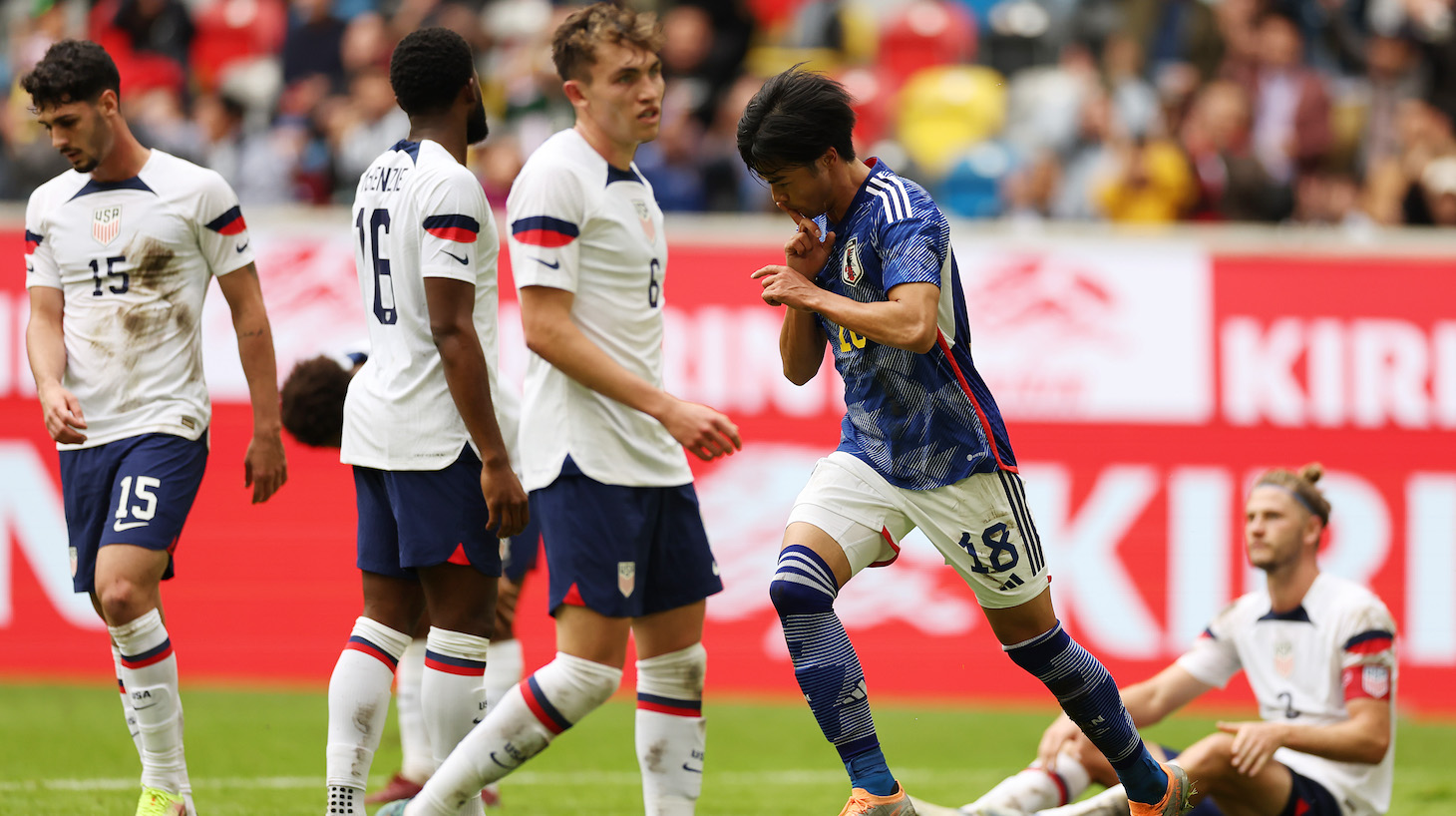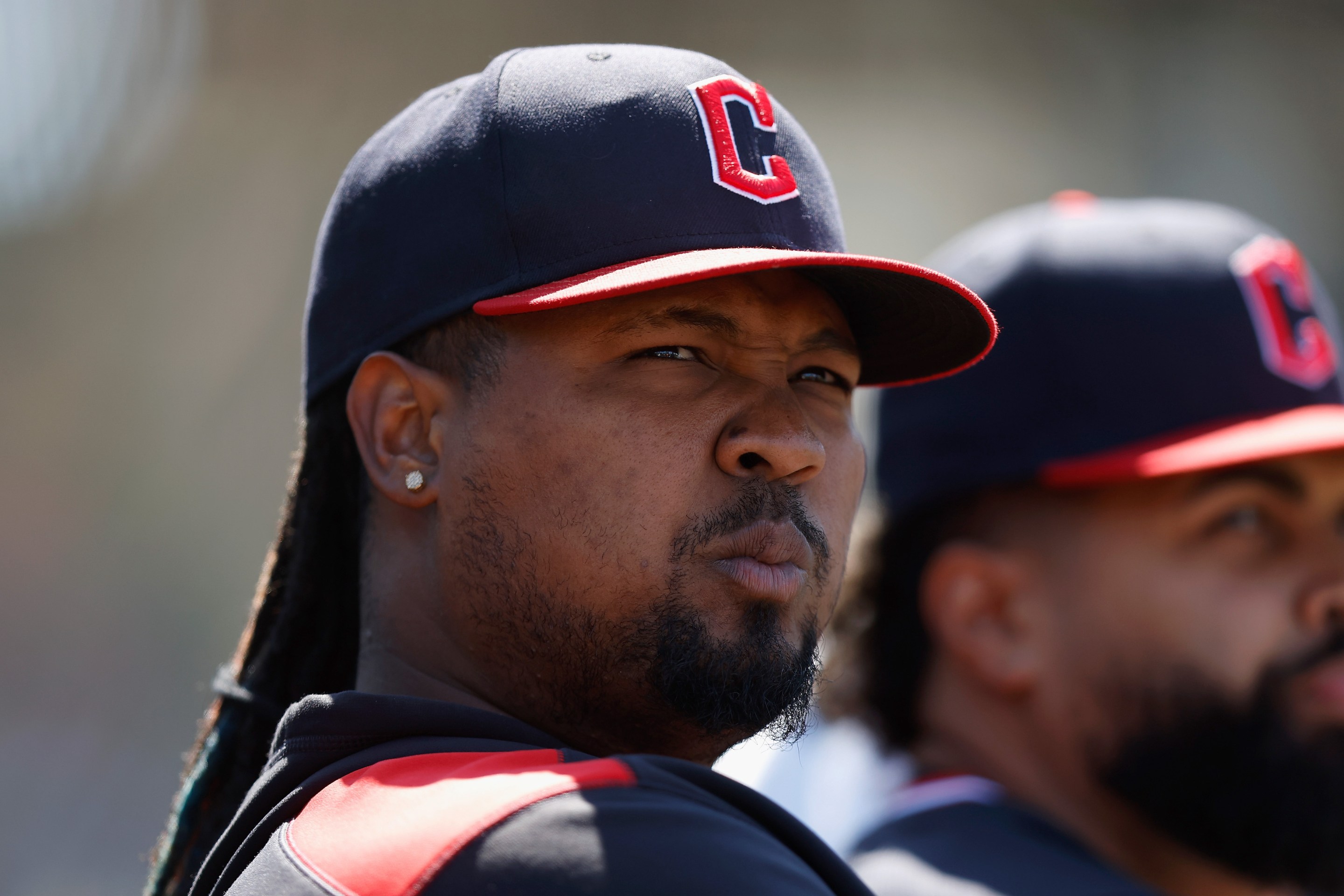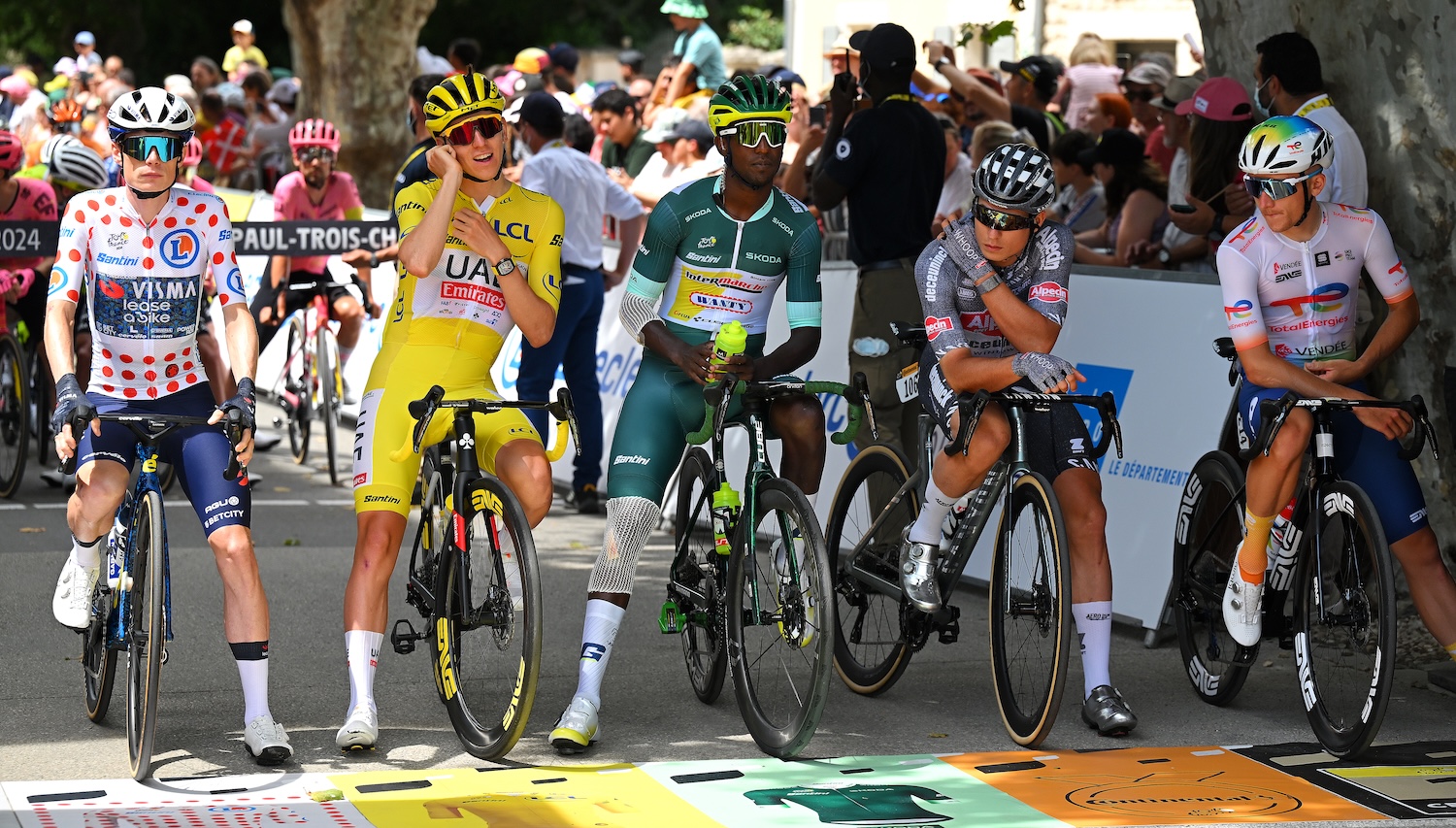One of the casualties of the rejiggered FIFA calendar is the high-profile intercontinental friendly. Ever since the likes of UEFA and CONCACAF adopted their own Nations League tournaments within the past few years, a large number of the most interesting national teams in the world have almost exclusively played their own confederation peers over and over again.
It is true that the Nations League games tend to be more competitive than the old, largely bloodless friendlies, and the new system has provided some cool moments with actual stakes. But it's a little boring to watch the same teams play each other all the time, and more pertinently ahead of the upcoming World Cup, it risks mismeasuring certain teams that haven't faced as many different, difficult tests as they might've in the past. You can see some of the latter issue in the USMNT's ugly 2–0 loss to Japan on Friday.
Though the scoreline might not imply it, Japan battered the USMNT. A combination of effective Japanese pressing and consistently bad American decision-making meant the U.S. constantly turned over the ball in terrible positions, gifting scoring opportunities to Japan. The USMNT's press rarely bothered Japan and instead created large fissures that the Japanese could capitalize on with a single long ball. The USMNT was reckless with the ball and disjointed off the ball; their measly three total shots reflected the impotence of their attacking efforts. It was an all-around nightmare of a match, the lone bright spot being a few solid saves made by Matt Turner to keep the final scoreline respectable.
It's understandable if you found yourself surprised by the result. Though obviously less visible here stateside, Japan is a peer of the USMNT at the tier of teams below the true World Cup contenders, below the group of potential dark horses, in the big pack of teams that aspire to win a knockout round match but also could easy fail to get out of their group. The USMNT has looked consistently strong in recent years: in World Cup qualifiers, Nations League matches, and the Gold Cup. Presumably, a team like Japan shouldn't be able to flat-out crush a team like the U.S.
But make no mistake: The U.S. is the team we saw against Japan. Not in the sense that those CONCACAF exploits were a mirage, but in the sense that the USMNT is both the cream of CONCACAF, a real threat in its group, and also an erratic, mistake-prone squad that on a bad day could very well get smashed by a team like Japan. The range of possibilities for this team is wide, encompassing lows like Friday's as well as highs like March's draw at the Azteca. This fact may have been revealed sooner had the U.S. played more solid international competition over the past couple years.
Part of it also has to do with who did and didn't play on Friday. The USMNT pool is deeper than it's ever been, but the squad still relies on top-end talents like Christian Pulisic and Yunus Musah, both of whom were absent against Japan, to put everyone else on their backs. With Pulisic, Musah, Antonee Robinson, and maybe Cameron Carter-Vickers on the field, the U.S. likely wouldn't have been as overwhelmed by Japan as they were. On the other hand, it's unclear whether Pulisic, who is currently buried on the Chelsea depth chart, will be in peak form when the World Cup comes around, and this mid-season edition of the tournament will likely be even more conditioned by injuries than usual.
The loss to Japan should serve as a helpful reminder of where to place expectations. The USMNT could very well have a great World Cup and get out of the group and maybe win a knockout match. It is also totally feasible that they don't win a single game and finish last. Obviously, the latter result would suck, especially with all the hype around this new-look, Europe-honed generation powering this version of the USMNT. But a bad outing against Japan or even a bad showing in Qatar shouldn't overshadow the real progress that has been made over the years. The arrow is still pointing up for American soccer—it's just good to remember that going up doesn't necessarily mean being at the top. And it might've been nice to see how high the U.S. has or hasn't gotten with a few more big international friendlies before now.







